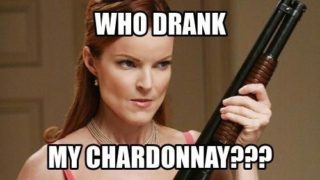
I see this case more as a discovery matter and a lesson for lawyers and clients not to lie. But it also stands for malicious prosecution, a favorable termination requires more than a dismissal of the underlying action. The person wrongfully sued who has prevailed must show a favorable termination on the merits that reflects on his innocence of the alleged wrongful conduct to support a subsequent action for malicious prosecution. This matter turned on a discovery issue, and Rams Gate hiding information in discovery.
This case involved the purchase of a Sonoma County winery by the defendant (Rams Gate Winery). For me, I especially liked the 1894 law pointed out by the Court stating: “…under Wittenbrock v. Parker (1894) 102 Cal. 93 (Wittenbrock), Ram’s Gate must be constructively charged with information in the hands of its transactional counsel,…” I love this because the transactional lawyer in the underlying purchase and sale transaction had possession of the information his client asserted it did not have. It is critical that lawyers send all documents and convey all facts about a transaction to their client! Roche v. Hyde – filed June 30, 2020, First District, Div. Four
Cite as 2020 S.O.S. 3283 Full text click here >
Further, this hotly litigated case had a unique issue involving Rams Gate winning a summary adjudication motion. While only part of the case was decided, Rams Gate only won due to its withholding of discovery. Therefore, the exception to the interim adverse judgment rule recognized in Carpenter v. Sibley (1908) 153 Cal. 215 (Carpenter) applied for judgments procured by fraud or perjury applies.
The Court held that “As a matter of first impression, we hold that egregious discovery misconduct—here, the withholding of a critical piece of evidence in willful violation of multiple court orders, including a sanctions order, where the suppressed evidence likely would have resulted in a summary judgment victory for Roche—may provide a basis for applying the fraud or perjury exception under Carpenter.”
I am continually amazed how lawyers and their clients lie and withhold information in discovery. Courts are not idiots, and when they discovery a lie in discovery, they tend to not believe anything the party (or their lawyer) say and the case is lost.
P.S. The initial transaction was in 2005, this case is still not over and its 2020! However, the prior owners of the winery have both passed away. The opinion n is 95 pages long, but has a nice discussion of the facts and law.

